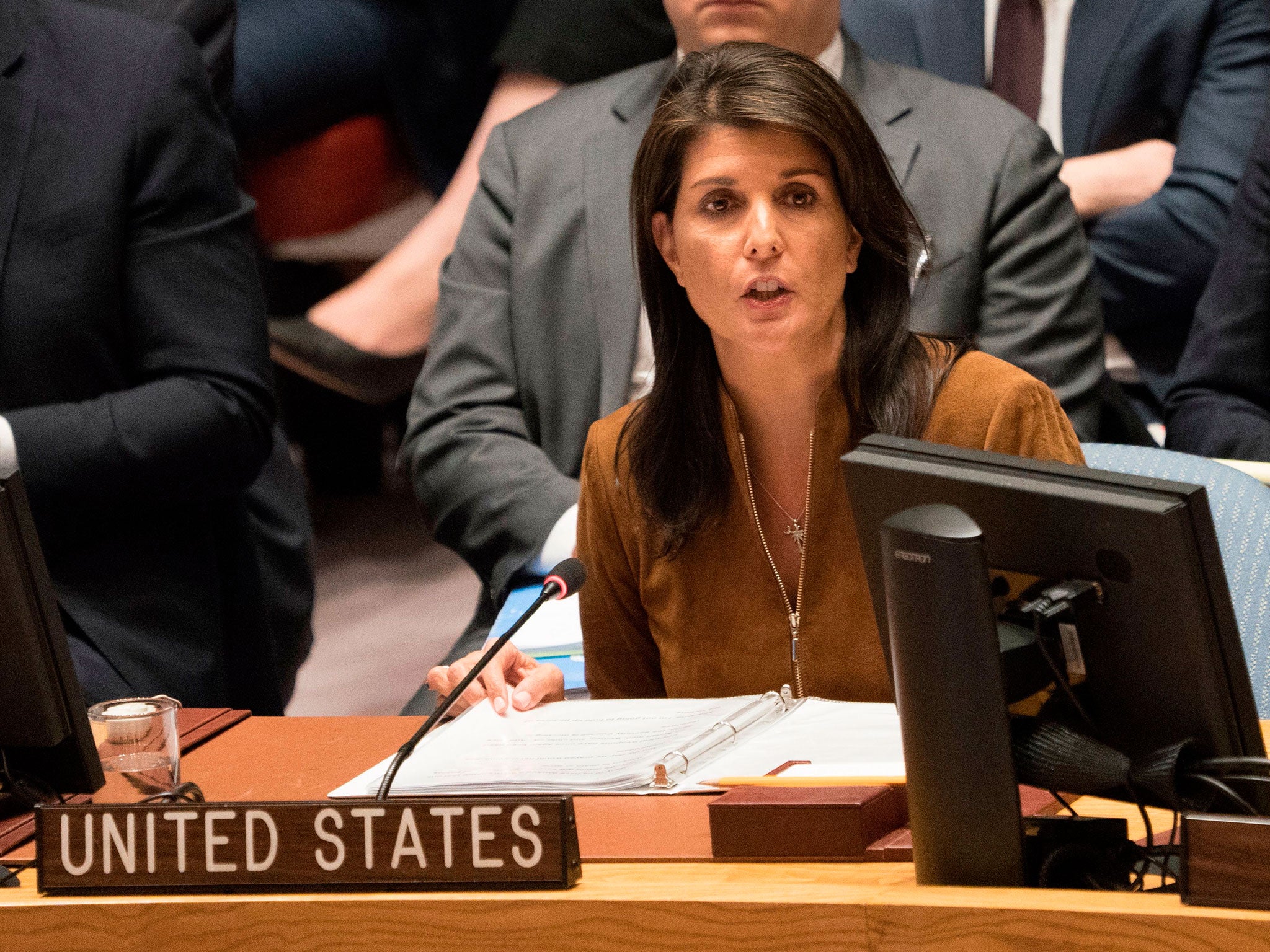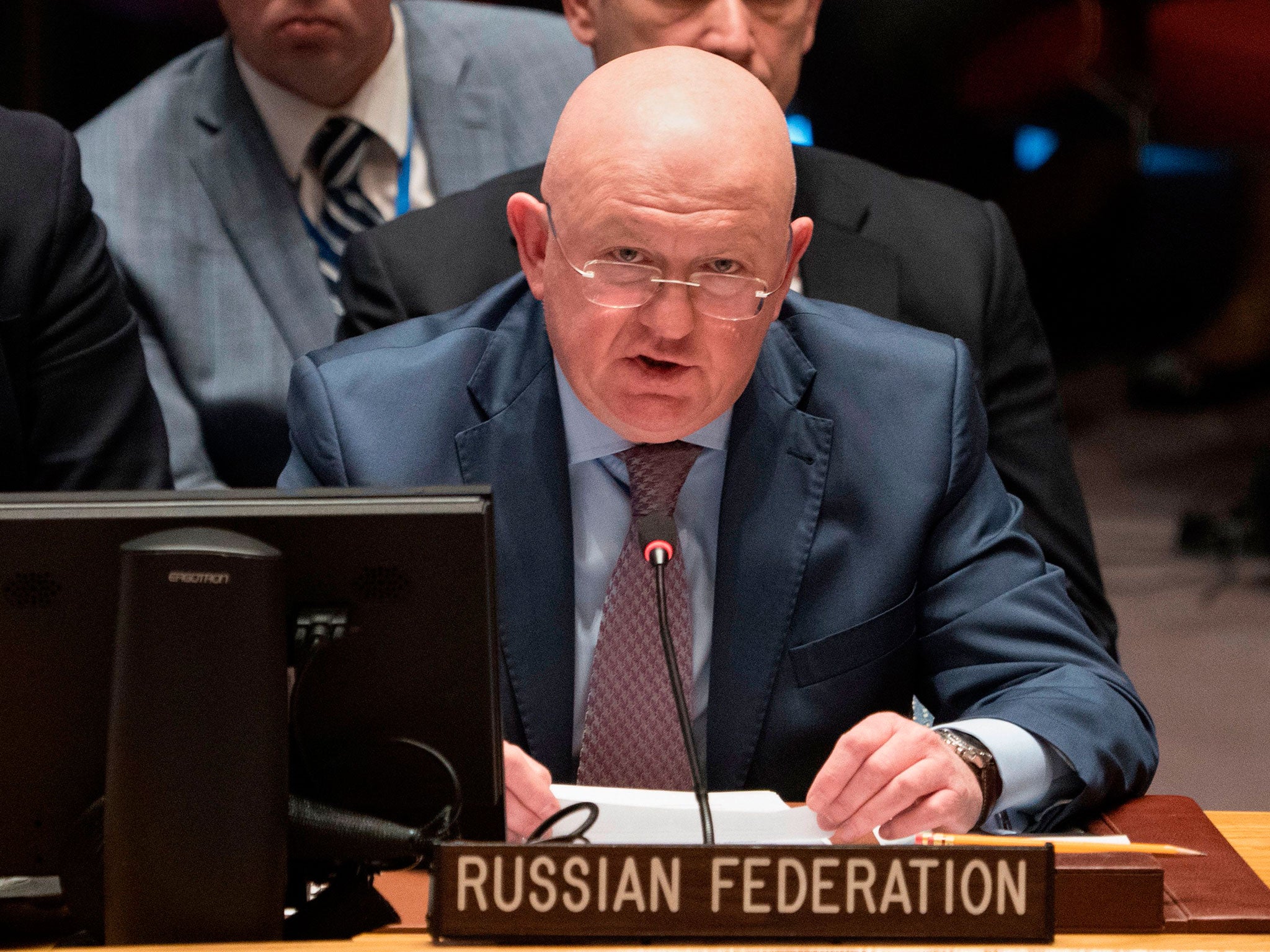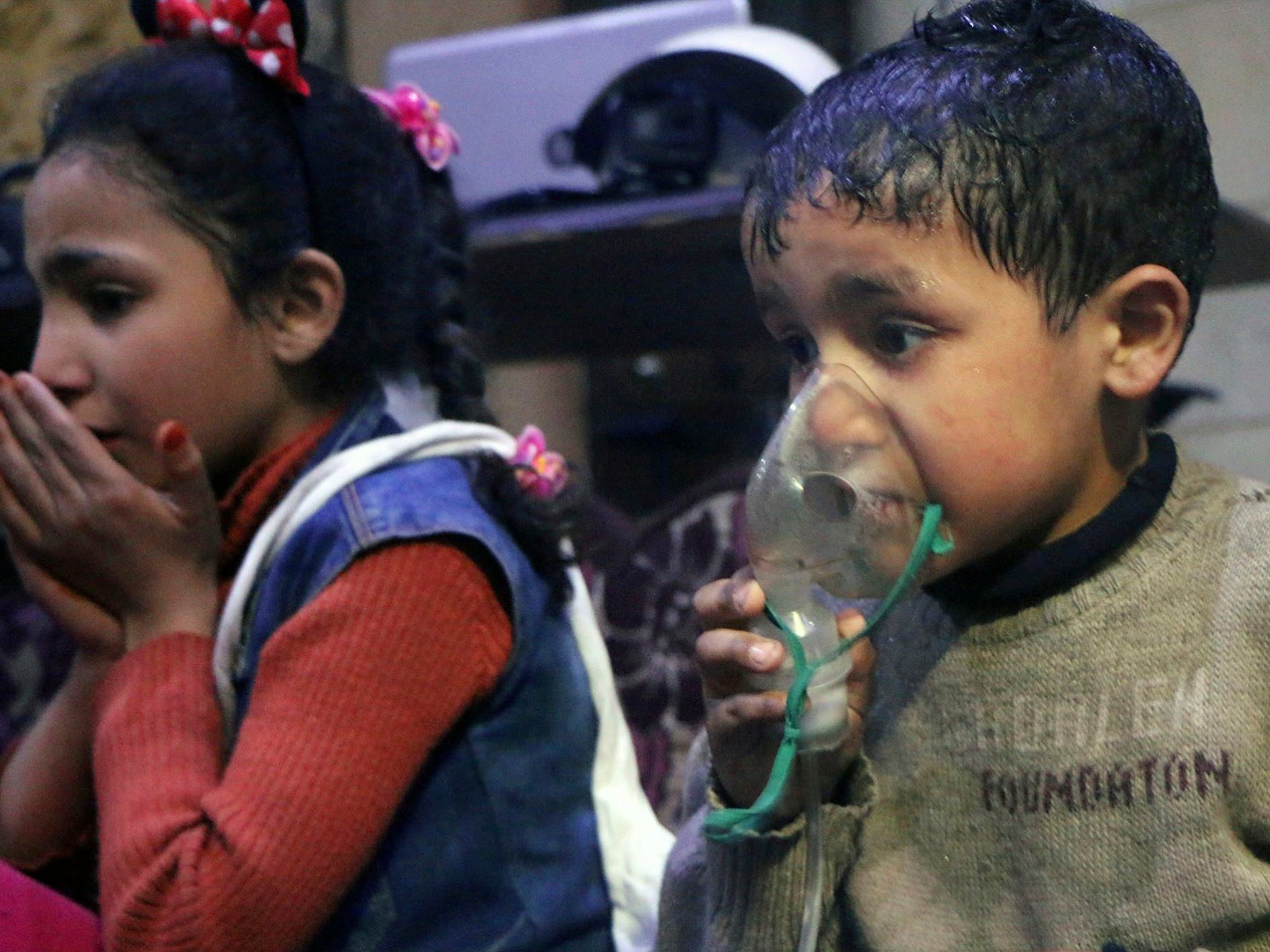Russia warns US response to Syria 'chemical weapons' attack could be met by 'grave repercussions'
Moscow dismisses suspected chemical weapons attack as 'fake news'
Donald Trump has vowed to respond ”forcefully” to a suspected chemical weapons attack in Syria, as Russia warned US military action would be met with “grave repercussions.”
President Trump told a meeting of military leaders and national security advisers he would make a decision on a response by Monday night “or very shortly after.”
He said the United States had “a lot of options militarily” on Syria.
“But we can’t let atrocities like we all witnessed... we can’t let that happen in our world... especially when we’re able to because of the power of the United States, the power of our country, we’re able to stop it.”
He added: ”We have a lot of options militarily, and we’ll be letting you know pretty soon. Probably after the fact.”

The Syrian government was accused of being behind an alleged chemical weapons attack which killed at least 60 people late on Saturday, with more than 1,000 injured at several sites in Douma, a rebel-held town in eastern Ghouta, near Damascus, according to a Syrian aid organisation.
President Trump’s comments came after Moscow’s ambassador to the UN warned of potential consequences of Western intervention in Syria

During heated exchanges at the UN Security Council, Vassily Nebenzia said US attacks on Syria “could lead to grave repercussions.”
The US ambassador, Nikki Haley, accused Russia of having “the blood of Syrian children” on its hands.
Mr Nebenzia dismissed claims the Syrian regime had used chemical weapons as “fake news” as he called for inspectors from the Organisation for the Prohibition of Chemical Weapons (OPCW) to fly to Syria on Tuesday to visit the site of the alleged attack.
Ms Haley urged the UN to take action, but stressed whether it acts or not “either way, the United States will respond”.
She added: “Meetings are ongoing. Important decisions are being weighed, even as we speak.”

When Mr Trump was asked if Russia’s president, Vladimir Putin, bore any responsibility for the attack, he responded: ”He may, yeah, he may. And if he does it’s going to be very tough, very tough.” He added: “Everybody’s gonna pay a price. He will. Everybody will.”
He criticised Mr Putin by name on Twitter, as he castigated Russia and Iran for backing Bashar al-Assad, who he called an “animal.”
Almost exactly a year ago, the US fired cruise missiles at a Syrian air base in response to the killing of dozens of civilians in a sarin gas attack on the opposition-held town of Khan Sheikhoun.
The missile strikes did little long-term damage to Syrian government forces, and Mr Assad’s position has only became stronger with Russian and Iranian support.
Amid the discussions in the White House, the US military appeared to manoeuvre into position to carry out any attack order.
The USS Donald Cook, a guided missile destroyer armed with Tomahawk cruise missiles, was underway in the eastern Mediterranean after completing a port call in Cyprus.
President Trump and his French counterpart, Emmanuel Macron, spoke twice in less than 24 hours to coordinate their response, the White House said.
Mr Macron and Mr Trump reiterated their desire for a “strong reaction” from the international community, Mr Macron’s office said.
Theresa May said that the UK was considering what action was necessary in response to the “barbaric” attack.
Asked if the UK would join any US-led military action in Syria, the prime minister said: “What we are currently doing is working urgently with our allies to assess what has happened here.
“We... are working urgently with our allies to asses what has happened. But, we are also working with our allies on any action that is necessary.”

Ms May sidestepped a question on whether Parliament would be recalled from recess to debate any military intervention.
William Hague, the former Conservative foreign secretary, said he had “little doubt” if he was still in office he would recommend military action in Syria.
Lord Hague, who was foreign secretary when then prime minister David Cameron lost a Commons vote he wanted to back action in Syria, said the aftermath of the defeat left the UK “enfeebled spectators of one of the most destructive conflagrations of our time”.
In February, the current foreign secretary, Boris Johnson, said Britain should consider joining military action against the Syrian regime if there is fresh “incontrovertible” evidence it has used chemical weapons against its own people.
Mr Johnson discussed the situation with the acting US secretary of state, John Sullivan, twice on Monday.

The US State Department said Mr Johnson and his Washington counterpart discussed “potential further steps the US and UK governments might take in coordination with other partners”.
The White House deliberations came as Russia and Syria blamed Israel for a pre-dawn air strike on a major air base in central Syria which reportedly killed at least 14 people, including Iranians active in Syria.
Join our commenting forum
Join thought-provoking conversations, follow other Independent readers and see their replies
Comments
Bookmark popover
Removed from bookmarks